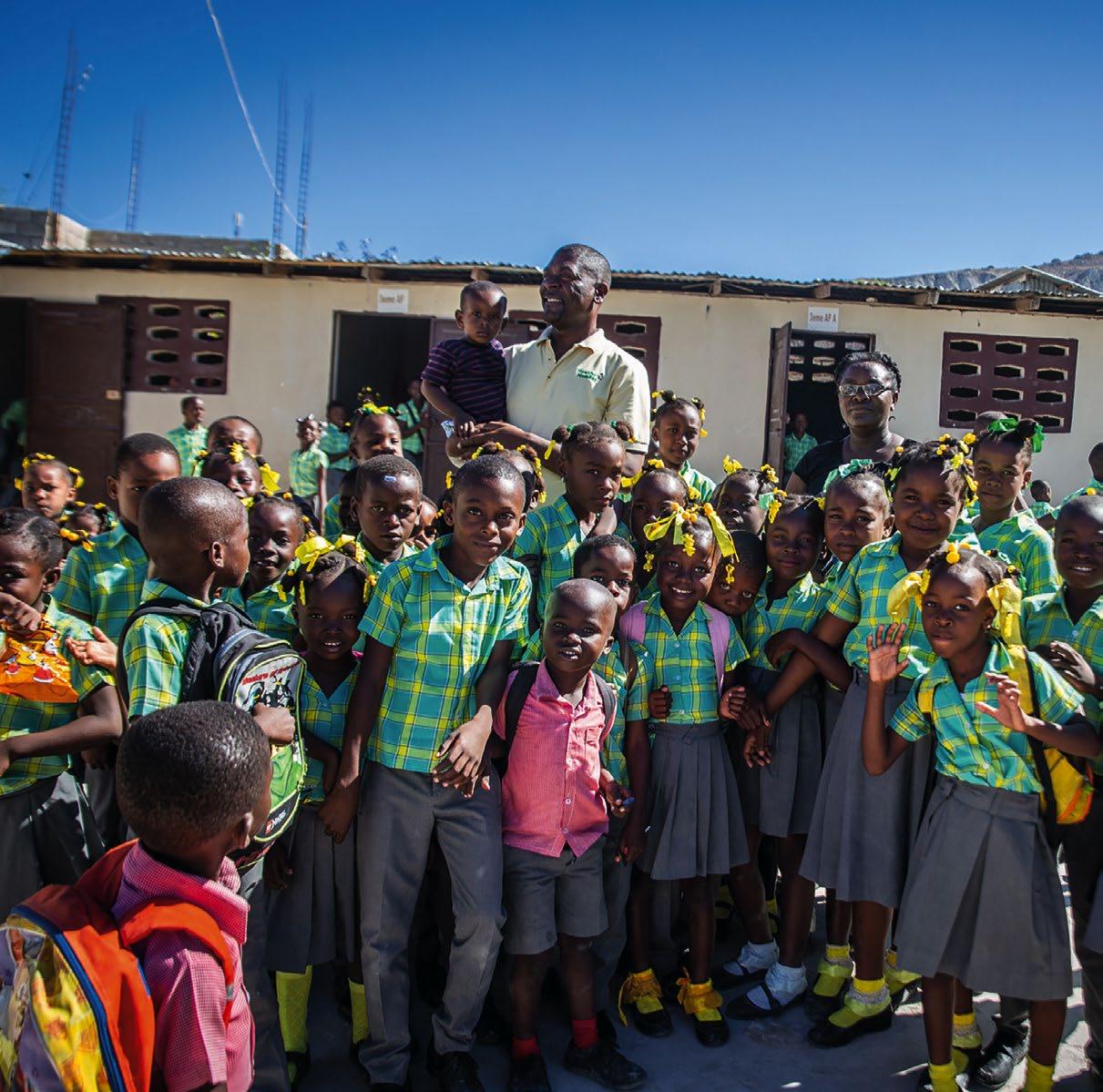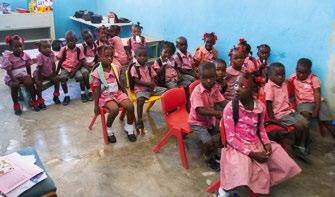
4 minute read
HOPE IN HAITI THROUGH MICROFINANCE
As the pandemic takes hold in the developing world, devastating consequences for the world’s poor are becoming more apparent by the week. When markets contract, society’s poorest members, especially women, are the most vulnerable to job and income loss. Research suggests up to 60% of small businesses, the backbone of local economies employing millions of people, will require support to survive mandatory business closures. FINCA alone projects that 120,000 small and microbusinesses of its female entrepreneurs that we support with micro-loans will be destroyed without assistance. The World Bank estimates that COVID-19 will push 71 million to 100 million people into extreme poverty, wiping out the last 5-10 years of progress and signalling the first increase in extreme poverty since 1998.

While those staggering figures may shock us all, it also inspires us to work harder to equip those in need with tools and resources that will help them become and remain resilient.
To support recovery efforts, FINCA Impact Finance – FINCA’s global network of 20 community-based microfinance institutions and banks – is working to restructure existing loans of its low-income entrepreneurs, so they do not have to choose between feeding their family and paying off their loan. Using technology and digital finance tools, FINCA Impact Finance is also ensuring customers can have safe access to financial services without the need to visit branches. When the economy restarts, FINCA will provide as many of them as possible with emergency loans to re-open, pivot, or scale-up their small businesses. That way, people like Anne Rose will be able to provide for their families with pride.


Anne Rose
You can see in her eyes that life has not been easy for Anne Rose Dorval.
But that’s not unusual in Haiti, the poorest country in the western hemisphere.
Despite Anne Rose never making it past primary school, she overcame life’s hardships to build a small but thriving business selling homemade jewelry out of a street-side stall in her hometown of Gonaives, Haiti – all thanks to her talent, grit, and determination.
When her son and his girlfriend became seriously ill, Anne Rose took in her grandson and knew she needed to increase her income to provide for him properly. That’s when she began working with FINCA. With loans from FINCA, she was able to travel to the Dominican Republic several times a year to buy wholesale sunglasses and other fashion accessories that have allowed her to build a larger clientele and earn more profits.

That was before the coronavirus pandemic shut things down this spring.
Now that the country is reopening, FINCA Canada is helping hardworking women like Anne Rose get their businesses back up to full speed—something that is urgently needed, now more than ever. Other FINCA Haiti clients are facing similar challenges. Kerlande Toussaint and her husband Annesse Aristild settled in Gonaives, Haiti, after the devastating effects of the earthquake in 2010 levelled their school in Port-Au-Prince. They debated moving away but decided they wanted to stay and educate Haitian children.

They applied for and received their first loan from FINCA in 2014. As Annesse notes, ever since then, “the school has grown thanks to FINCA loans.” The money to pay teacher salaries and other operating expenses comes from tuition, a tiny bit of government money, and donations that allow them to offer scholarships to some of the most impoverished families. But to build a new classroom or buy books and equipment, Kerlande and Annesse need cash upfront. That’s where FINCA loans have helped out time and time again, allowing them to add a new grade every year since.
“We really trust FINCA,” says Kerlande. “And we’re glad that FINCA trusts us. We used our loans to invest in the school. We know other people who get loans from big banks to buy cars or a motorbike. That’s not a good investment.”
Everything was looking up, with a staff of 30 and more than 600 children enrolled from kindergarten through 10th grade. However, in March, COVID-19 forced school closures, putting the school’s staff out of work. Thankfully, with schools scheduled to open in late August for the first time in five months, they are busily preparing to make sure their students can safely learn without spreading the virus. Her staff are desperate to come back to work, not only to support their families but to make sure Haitian children have the tools for life-long success.











